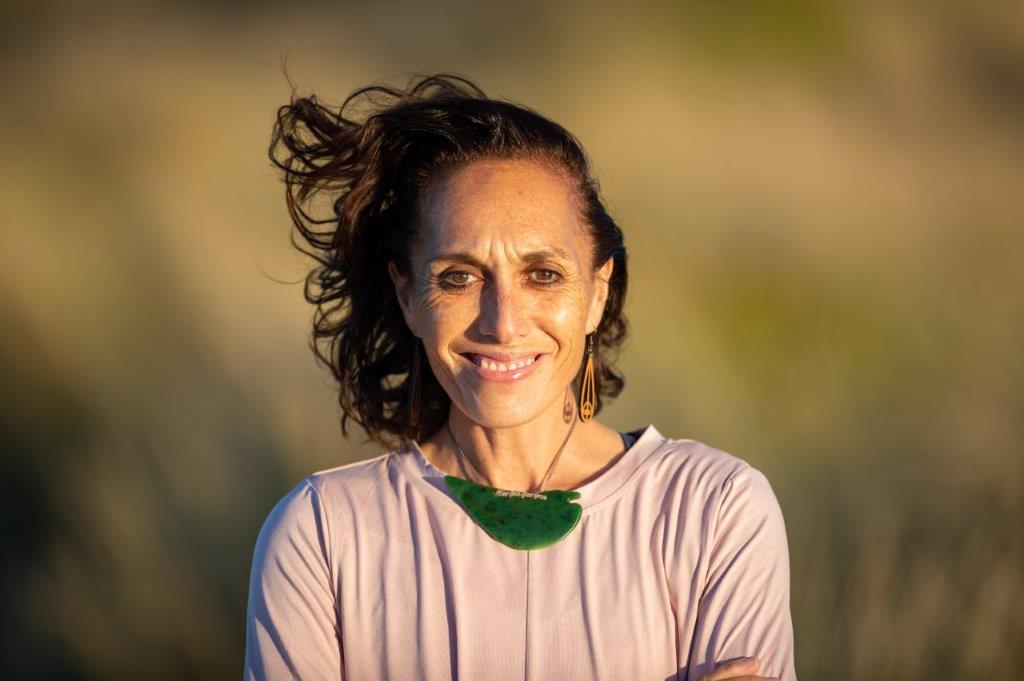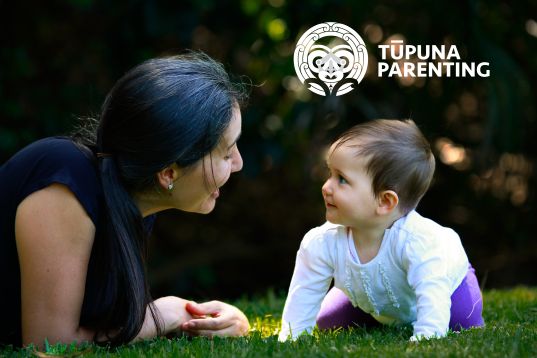Two new websites which celebrate mātauranga Māori in pregnancy and parenting are renewing treasures of the past with communities of today.
Tūpuna Parenting shares knowledge about Māori approaches to raising children from pre-European and early contact periods, as an inspiration for modern day parenting. The website is part of a movement to improve whānau wellbeing, parenting confidence and lessen stress.
“The gentle and respectful practices of our tūpuna are as relevant today as they were 200 years ago,” says Elizabeth Emere Harte (Ngā Puhi, Ngāti Porou), co-founder of the Tūpuna Parenting movement.
“Upholding tūpuna values means people can reflect and be guided by their ancestors as they raise their own whānau. The idea is to empower them with quality information and gentle, attentive, relevant role models to achieve lasting change for tamariki”.
The Tūpuna Parenting website features whakataukī, early explorer accounts and mātauranga that whānau, hapū and iwi have retained over generations. Professionals who support families in the health, social welfare and education sectors can also find resources on how kaupapa Māori parenting can strengthen their work with whānau.
“We all want the best for our whānau. Our tūpuna can help us achieve it” says Elizabeth.
Te Waipounamu
Hākui connects Ngāi Tahu whānau and Māori midwives in Te Waipounamu with tīpuna knowledge about pregnancy and birth, including miscarriage and still birth. Hākui is the Ngāi Tahu word for mother.
The website showcases Ngāi Tahu oriori (birth chants), academic research, wānanga/events and a directory of Māori midwives and others with skills in conception, pregnancy, birth and hauora Māori. This includes kaiwhatu (weavers), those who run parenting wānanga and artists including taonga pūoro (musical instruments) practitioners.
 “In Te Waipounamu whānau and Māori midwives don’t have anywhere to learn about oriori, taonga pūoro or their role in hapūtanga (things to do with pregnancy). Mātauranga like this has been nearly erased through colonisation and the medicalisation of birth” says Dr Kelly Tikao whose research into Ngāi Tahu birthing traditions is the basis for Hākui.
“In Te Waipounamu whānau and Māori midwives don’t have anywhere to learn about oriori, taonga pūoro or their role in hapūtanga (things to do with pregnancy). Mātauranga like this has been nearly erased through colonisation and the medicalisation of birth” says Dr Kelly Tikao whose research into Ngāi Tahu birthing traditions is the basis for Hākui.
“When we reclaim those tikanga we restore them as a positive part of whānau wellbeing. And when whānau share what they’ve learned, they normalise those practices and build sustainability.”
A researcher, registered nurse and mother of five, Kelly (Waitaha, Kāti Māmoe, Kāi Tahu) says Hākui is a positive response to local challenges including the low rate of Māori women attending antenatal education, the high rate who choose a midwife late in pregnancy and the limited professional development opportunities for Māori midwives to upskill in this area.
Both websites have been supported by Te Hiringa Hauora | Health Promotion Agency through its First 1,000 Days programme.
Tanya Radford, programme lead, says mātauranga Māori has much to offer because long-held indigenous knowledge shows us a lot about how early life experiences affect pēpi.
“We know that culturally grounded, safe and uplifting models lead to better lives for māmā and pēpi Māori. So the more information we can revive and draw on to include as a normal part of ante and post-natal care for Māori women and their whānau the better”.
Te Hiringa Hauora advocates and shares quality research and successful community solutions to their own challenges. The aim is to influence the health sector and a new direction that will lead to hapū māmā (pregnant women), pēpi, tamariki and whānau thriving long term.

